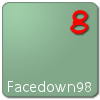Also, I would like to do a few more things on the system that likely are more resource intensive...primarily with the online poker playing really, with a few applications running at the same time. Will this RAM fix make this happen or should I really consider a new system if I want to do these things?
I have a system in my kid's room that is 2.66 GHz and 512 MB RAM but has a much smaller hard drive. It is many times faster/smoother than this system. Start up is quick, the desktop icons pop up immediately, versus a lagging sort of loading time on this system...web pages pop up much quicker on that system than this... remember my system is 2.0 GHz and 256 MB RAM. Is the other system so much faster primarily because of the processor speed or the increased RAM? I may upgrade the RAM in that one and make it the primary system. If I wanted to consider doing that, how much of a factor should it be that it has a smaller hard drive...I think the HD on this system is like 75 GB and that one is actually smaller....50 GB maybe...I'm assuming that both of these are really small...what does this really mean to me, practically speaking?...that I can't have many programs/applications stored on the system? Does it affect performance?
If I purchase this RAM, do you guys have a suggestion as to where to get it? Best Buy and like electronics stores or online? Most cost effective suggestions?
Thanks for all the help, based on your confidence, I'm guessing that installing the RAM won't be very difficult...if the directions are clear and well written I'm sure it will be no problem...I may have no clue what I'm doing, but I can follow directions meticulously at least. I guess I should have formatted these questions better, sorry for the rambling form.















 Sign In
Sign In Create Account
Create Account

